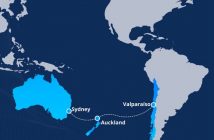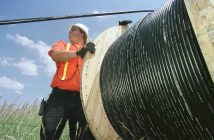WEL Networks Limited (WEL) has reached an agreement with Crown Fibre Holdings (CFH) to purchase all of the government’s shares in Ultrafast Fibre Limited.
This makes WEL the majority shareholder of Ultrafast Fibre, with partner Waipa Networks Limited retaining its current shareholding.
WEL chairman Margaret Devlin says the purchase is an exciting step in WEL’s overall growth strategy, and reinforces the business’s position as an innovative and future-focused investor in regional infrastructure.
“We are pleased to have taken majority ownership of Ultrafast Fibre. While it was always planned that WEL would become the majority shareholder, the time is right for us to push ahead. This purchase fits with WEL’s growth strategy and our evolution from a traditional lines company to being a diversified multi-utility,” says Ms Devlin.
“Ultra-Fast Broadband (UFB) is facilitating strong economic growth in the regions where Ultrafast Fibre operates. We are proud that our investment in UFB is helping to provide jobs, stimulating the local economy, and enabling innovative ways of learning for students in these urban centres.
“With greater control over our investment we will be able to explore new ways to support economic growth and social opportunities for our business and our communities, now and into the future.”
Ultrafast Fibre owns and operates the fibre network in the urban areas of Hamilton, Tauranga, Whanganui, New Plymouth, Tokoroa, Hawera, Cambridge and Te Awamutu, providing access to UFB for more than 190,000 end users across the North Island. The network and connections is valued at over $300 million.
The Local Fibre Company was established in 2010 after WEL won a government tender to partner with CFH to deploy UFB services. Until now, Ultrafast Fibre has been a joint shareholding of CFH and Waikato Networks Limited, which is a subsidiary of WEL and Waipa Networks Limited.
Ms Devlin says WEL’s purchase makes excellent business sense, as demand for UFB continues to increase from consumers across the residential, business, health and education sectors.
“WEL originally invested in UFB to bring fibre to the regions faster, and we were successful, completing the UFB1 rollout on budget and six months ahead of schedule,” says Ms Devlin.
Image copyright: <a href=’http://www.123rf.com/profile_pariwatlp’>pariwatlp / 123RF Stock Photo</a>




